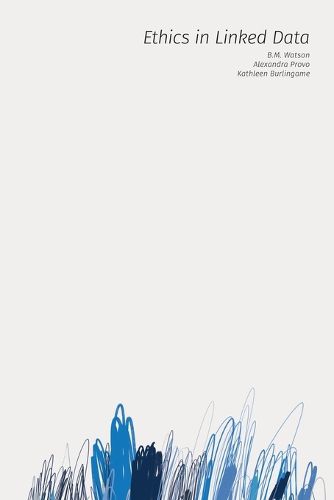Readings Newsletter
Become a Readings Member to make your shopping experience even easier.
Sign in or sign up for free!
You’re not far away from qualifying for FREE standard shipping within Australia
You’ve qualified for FREE standard shipping within Australia
The cart is loading…






This title is printed to order. This book may have been self-published. If so, we cannot guarantee the quality of the content. In the main most books will have gone through the editing process however some may not. We therefore suggest that you be aware of this before ordering this book. If in doubt check either the author or publisher’s details as we are unable to accept any returns unless they are faulty. Please contact us if you have any questions.
This edited collection brings together contributions that explore ethics in linked data initiatives. Discussions about linked data and its potential are often utopian and technophiliac, rarely examining darker implications or harmful consequences. Since technology cannot exist outside of social, cultural, and economic spheres, it is important for creators and stewards of linked data and its related systems to recognize and address the impact (whether intended or not, positive or negative) on the communities, individuals affected. Engaging in critical and ethical analysis is ultimately an optimistic endeavor aimed at exposing problematic issues, generating best practices and guidelines, and opening up positive and generative possibilities for the implementation and use of linked data in GLAMS (Galleries, Libraries, Archives, Museums, Special Collections).
The central premise of this book is that it is imperative:
to foreground ethics rather than apply them as an afterthought, to acknowledge and mitigate the damage caused by existing systems, to create a place and space of justice for the minoritized, and to enable more ethical outcomes in linked data projects.
This book collects the voices of practitioners, technologists, and developers working on linked data initiatives; scholars working at the intersection of ethics, cultural heritage, and technology; and workers in GLAMS, among others in order to explore emerging and changing technical and ethical landscapes. Contributions investigate the intersection of linked data with such topics as gender, indigenous knowledge, inclusive data creation, authority control, identity management, systems design, codes of ethics, sustainability, critiques of fundamental linked data models, and more.
$9.00 standard shipping within Australia
FREE standard shipping within Australia for orders over $100.00
Express & International shipping calculated at checkout
This title is printed to order. This book may have been self-published. If so, we cannot guarantee the quality of the content. In the main most books will have gone through the editing process however some may not. We therefore suggest that you be aware of this before ordering this book. If in doubt check either the author or publisher’s details as we are unable to accept any returns unless they are faulty. Please contact us if you have any questions.
This edited collection brings together contributions that explore ethics in linked data initiatives. Discussions about linked data and its potential are often utopian and technophiliac, rarely examining darker implications or harmful consequences. Since technology cannot exist outside of social, cultural, and economic spheres, it is important for creators and stewards of linked data and its related systems to recognize and address the impact (whether intended or not, positive or negative) on the communities, individuals affected. Engaging in critical and ethical analysis is ultimately an optimistic endeavor aimed at exposing problematic issues, generating best practices and guidelines, and opening up positive and generative possibilities for the implementation and use of linked data in GLAMS (Galleries, Libraries, Archives, Museums, Special Collections).
The central premise of this book is that it is imperative:
to foreground ethics rather than apply them as an afterthought, to acknowledge and mitigate the damage caused by existing systems, to create a place and space of justice for the minoritized, and to enable more ethical outcomes in linked data projects.
This book collects the voices of practitioners, technologists, and developers working on linked data initiatives; scholars working at the intersection of ethics, cultural heritage, and technology; and workers in GLAMS, among others in order to explore emerging and changing technical and ethical landscapes. Contributions investigate the intersection of linked data with such topics as gender, indigenous knowledge, inclusive data creation, authority control, identity management, systems design, codes of ethics, sustainability, critiques of fundamental linked data models, and more.